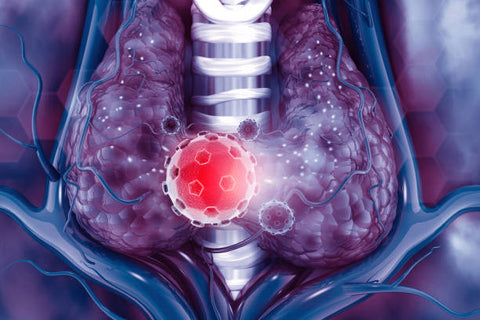Introduction
The thyroid is a small, butterfly-shaped gland located in the neck that plays a crucial role in regulating metabolism and overall health. When the thyroid is not functioning properly, it can lead to a variety of symptoms and health problems. In this blog, we will explore the anatomy and function of the thyroid, common thyroid disorders, and the available treatments.

Anatomy and Function of the Thyroid
- The thyroid gland is located in the front of the neck, below the larynx (voice box) and above the collarbone.
- The thyroid produces two hormones, triiodothyronine (T3) and thyroxine (T4), which help regulate metabolism, heart rate, and body temperature.
- The thyroid also produces calcitonin, which helps regulate calcium levels in the blood.
Common Thyroid Disorders

- Hypothyroidism: This is a condition in which the thyroid gland does not produce enough hormones. This can lead to symptoms such as fatigue, weight gain, and depression.
- Hyperthyroidism: This is a condition in which the thyroid gland produces too much hormone. This can lead to symptoms such as rapid heart rate, weight loss, and anxiety.
- Goiter: A goiter is an enlarged thyroid gland that can be caused by a variety of factors, including hypothyroidism, hyperthyroidism, and iodine deficiency.
- Thyroid nodules: These are small lumps that can develop in the thyroid gland. Most thyroid nodules are benign (not cancerous), but a small percentage can be malignant (cancerous).
Treatments for Thyroid Disorders
- Hormone replacement therapy: This is the most common treatment for hypothyroidism. The patient takes a daily pill that contains the hormones T3 and T4 to help regulate metabolism and alleviate symptoms.
- Antithyroid medication: This is a medication that helps to reduce the production of thyroid hormone in patients with hyperthyroidism.
- Radioactive iodine: This is a treatment for hyperthyroidism that uses a small dose of radioactive iodine to destroy the overactive thyroid tissue.
- Surgery: In some cases, surgery may be necessary to remove all or part of the thyroid gland. This is often the case for patients with large goiters or malignant thyroid nodules.
Conclusion
The thyroid is a vital gland that plays a crucial role in regulating metabolism and overall health. When the thyroid is not functioning properly, it can lead to a variety of symptoms and health problems. However, there are effective treatments available to help regulate the thyroid and alleviate symptoms. If you are experiencing symptoms such as fatigue, weight gain or loss, or changes in mood, it is important to speak with a doctor to determine the underlying cause and receive appropriate treatment.












